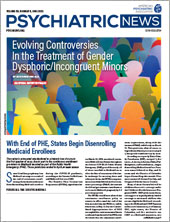DEA, SAMHSA Release Temporary Rule Extending Telemedicine Flexibilities


Resources
Information & Authors
Information
Published In
History
Keywords
- Opioid use disorder
- OUD
- Substance use disorders
- Drug Enforcement Administration
- DEA
- anne milgram
- buprenorphine
- Chronic pain
- Overdose
- Misuse
- U.S. Department of Veterans Affairs
- Department of Health and Human Services
- hhs
- telehealth
- public health emergency
- PHE
- controlled substances
- COVID-19
- 30-day supply
- barriers to care
- in-person evaluation
- APA
- administrative requirements
Authors
Metrics & Citations
Metrics
Citations
Export Citations
If you have the appropriate software installed, you can download article citation data to the citation manager of your choice. Simply select your manager software from the list below and click Download.
For more information or tips please see 'Downloading to a citation manager' in the Help menu.
View Options
View options
Login options
Already a subscriber? Access your subscription through your login credentials or your institution for full access to this article.
Personal login Institutional Login Open Athens loginNot a subscriber?
PsychiatryOnline subscription options offer access to the DSM-5-TR® library, books, journals, CME, and patient resources. This all-in-one virtual library provides psychiatrists and mental health professionals with key resources for diagnosis, treatment, research, and professional development.
Need more help? PsychiatryOnline Customer Service may be reached by emailing [email protected] or by calling 800-368-5777 (in the U.S.) or 703-907-7322 (outside the U.S.).
